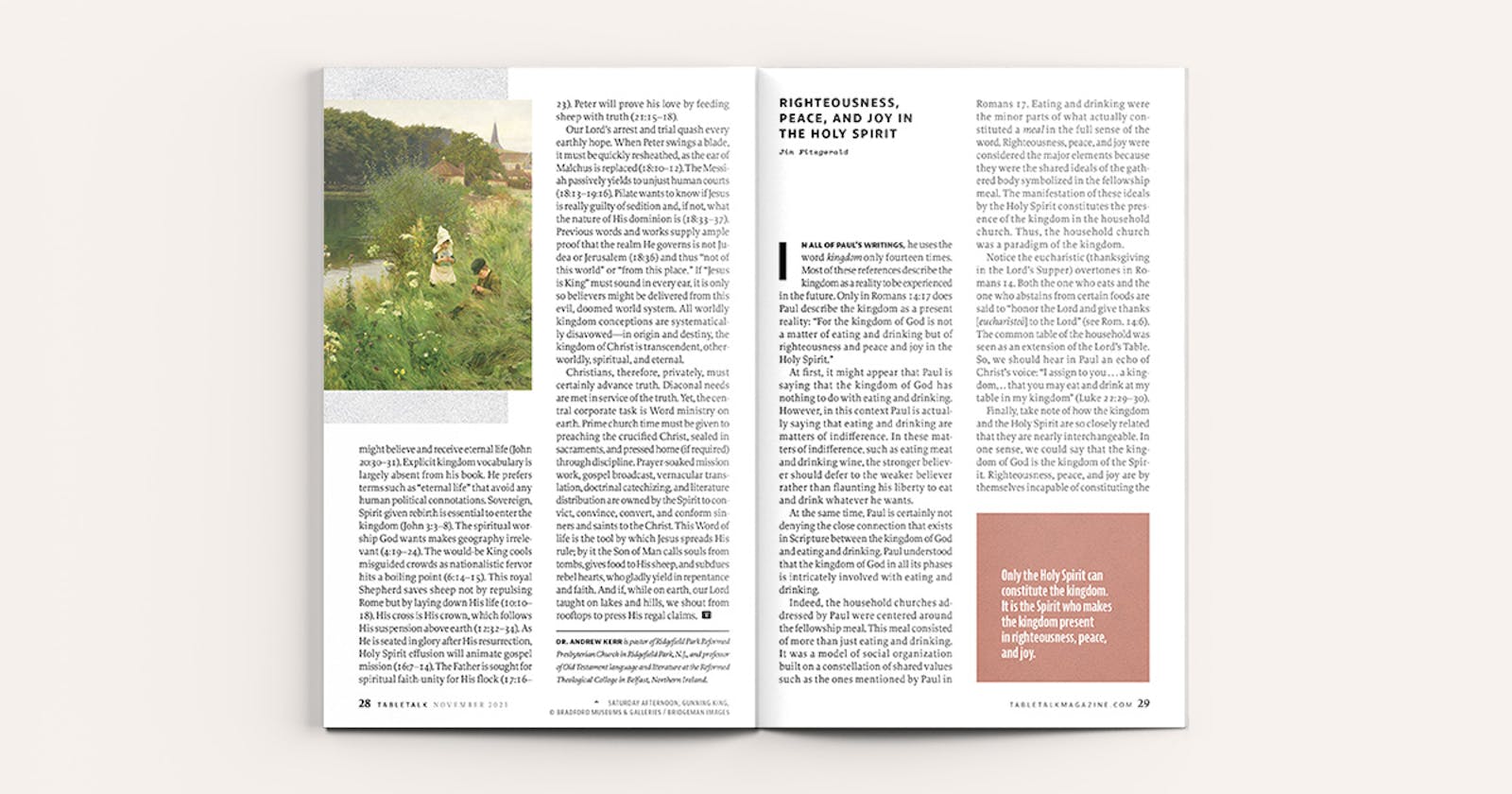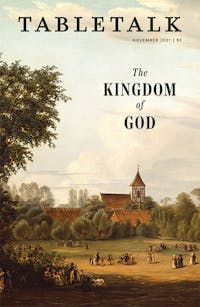
Request your free, three-month trial to Tabletalk magazine. You’ll receive the print issue monthly and gain immediate digital access to decades of archives. This trial is risk-free. No credit card required.
Try Tabletalk NowAlready receive Tabletalk magazine every month?
Verify your email address to gain unlimited access.
Crusades, persecution, revolt, education, and secular conceptions of social justice are some means that have been used in vain attempts at kingdom building. If mistaken actions stem from erroneous conceptions, Jesus made clear that His rule is over souls before it is over lands. If the gospel of God reverses Adam’s fall, human life and lordship can be reclaimed only by a spiritual solution to the sin problem. Daniel shows world leaders as subject to a glorious heavenly figure (Dan. 7:13–14). The Psalms and Prophets make clear that time and space cannot limit the future dominion of David (Pss. 8:1–9; 72:17; Isa. 9:6–7).
The purpose of John’s gospel is spiritual throughout. He offers the Word-made-flesh, by collected signs and sayings, so readers might believe and receive eternal life (John 20:30–31). Explicit kingdom vocabulary is largely absent from his book. He prefers terms such as “eternal life” that avoid any human political connotations. Sovereign, Spirit-given rebirth is essential to enter the kingdom (John 3:3–8). The spiritual worship God wants makes geography irrelevant (4:19–24). The would-be King cools misguided crowds as nationalistic fervor hits a boiling point (6:14–15). This royal Shepherd saves sheep not by repulsing Rome but by laying down His life (10:10–18). His cross is His crown, which follows His suspension above earth (12:32–34). As He is seated in glory after His resurrection, Holy Spirit effusion will animate gospel mission (16:7–14). The Father is sought for spiritual faith-unity for His flock (17:16–23). Peter will prove his love by feeding sheep with truth (21:15–18).

Our Lord’s arrest and trial quash every earthly hope. When Peter swings a blade, it must be quickly resheathed, as the ear of Malchus is replaced (18:10–12). The Messiah passively yields to unjust human courts (18:13–19:16). Pilate wants to know if Jesus is really guilty of sedition and, if not, what the nature of His dominion is (18:33–37). Previous words and works supply ample proof that the realm He governs is not Judea or Jerusalem (18:36) and thus “not of this world” or “from this place.” If “Jesus is King” must sound in every ear, it is only so believers might be delivered from this evil, doomed world system. All worldly kingdom conceptions are systematically disavowed—in origin and destiny, the kingdom of Christ is transcendent, otherworldly, spiritual, and eternal.
Christians, therefore, privately, must certainly advance truth. Diaconal needs are met in service of the truth. Yet, the central corporate task is Word ministry on earth. Prime church time must be given to preaching the crucified Christ, sealed in sacraments, and pressed home (if required) through discipline. Prayer-soaked mission work, gospel broadcast, vernacular translation, doctrinal catechizing, and literature distribution are owned by the Spirit to convict, convince, convert, and conform sinners and saints to the Christ. This Word of life is the tool by which Jesus spreads His rule; by it the Son of Man calls souls from tombs, gives food to His sheep, and subdues rebel hearts, who gladly yield in repentance and faith. And if, while on earth, our Lord taught on lakes and hills, we shout from rooftops to press His regal claims.
